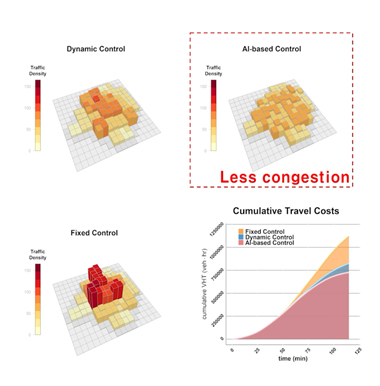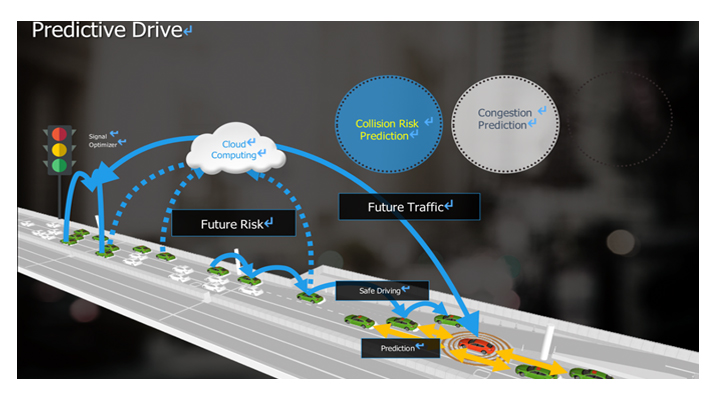CIVIL&ENVIRONMENTAL
ENGINEERING
WEBZINE2020 Vol.03, No.1Featured
Transmatics Lab: Mobility empowered by AI and Big Data-
- CES 2020 is known as the largest and most influential convention in the world gaining more interest from many major industries. In this big gathering illuminating new IT trends and producing many business opportunities, one of the most wanted and enthusiastic keywords was “mobility”. Replacing the old concept of transportation focusing mainly on the government-side approach, “mobility”, which gives more focus on the user-side, is emerging with advanced technologies from many fields including AI, computer vision, big data, and even psychology and sociology.

-
-
KAIST Transmatics Lab. led by Prof. Hwasoo Yeo, has been working in the AI Mobility area in collaboration with the University of Queensland, NYUAD, and EPFL. This Lab challenges to solve some difficult problems such as city-scale traffic signal control with AI, driver’s risk and travel time prediction with big data, and city-level mobility optimization with the on-demand transit system.
Microsoft Research has supported the lab’s AI-based mobility research since 2014, and the result was chosen as the top project by Microsoft Research Asia in 2018 and it is currently under commercialization.
-
KAIST Transmatics Lab. led by Prof. Hwasoo Yeo, has been working in the AI Mobility area in collaboration with the University of Queensland, NYUAD, and EPFL. This Lab challenges to solve some difficult problems such as city-scale traffic signal control with AI, driver’s risk and travel time prediction with big data, and city-level mobility optimization with the on-demand transit system.




